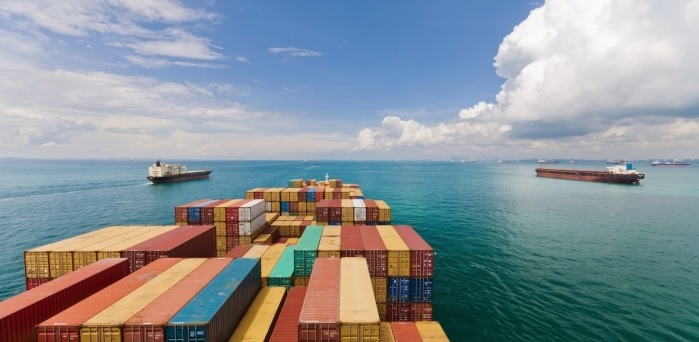The UK MCA issued a marine guidance note regarding the transport of items, which are classified as dangerous under the IMDG Code, when carried by individuals in a private vehicle -such as cars/caravans/trailers/mobile homes- or by foot passengers. It does not include vehicles in commercial use, ambulances or vehicles driven by contractors/employees.
- The following are the type and range of goods permitted to be carried in a private vehicle not in commercial use:
- Ammunition/weapons:
Users are recommended to pre-book advising the shipping line that you intend to carry ammunition in order to determine any local requirements. All firearms should be accompanied by a current valid Firearm, Shotgun or Registered Firearms Dealer’s (RFD) certificate and these should be available for inspection by either the booking in staff or port security personnel. Certificate holders should be aware of their requirements for ensuring the secure storage of arms and ammunition, for example: Any shooting equipment should not be visible when carried in vehicles.
[smlsubform prepend=”GET THE SAFETY4SEA IN YOUR INBOX!” showname=false emailtxt=”” emailholder=”Enter your email address” showsubmit=true submittxt=”Submit” jsthanks=false thankyou=”Thank you for subscribing to our mailing list”]
The shipping line is advised to inform their local port security department to ensure smooth passage of the passenger and firearms/ammunition through the port area.
Ammunition: A maximum of 1000 cartridges of UN 0012 and UN 0014 of Class 1.4S per vehicle, which should be carried in the original manufacturers packaging, is permitted without documentation. Quantities in excess of this must be declared and carried according to IMDG Code.
- Balloonists:
Propane/Helium (maximum of 3 cylinders, the combined weight of which must not exceed 47 kg). Purged cylinders require certificates to be produced.
- Cars/camper vans/motor homes/caravans:
Butane/Propane (maximum of 3 cylinders, the combined weight of which must not exceed 47 kg) for lighting, cooking or heating purposes only.
- Cars powered by multi fuel-hybrids:
Only recognised manufactured models with standard specification or where evidence is provided that any modifications have been carried out by a competent certified mechanic
- Divers:
A maximum of 6 cylinders may be carried per vehicle of size ‘F’ or smaller (9.4 litres water capacity, with approximate dimensions 930mm x 140mm or up to 60 litres aggregate water capacity), containing either UN1002 AIR, COMPRESSED, UN1072 OXYGEN or UN3156 COMPRESSED GAS, OXIDISING N.O.S (Oxygen, Nitrogen). Cylinders must be declared to the ship’s officer and shore side personnel prior to loading. No other dangerous goods (e.g. Class 2.1 Flammable gases, Class 3 – 3 – Flammable liquids) may be carried in the same vehicle as the diving gases.
- DIY and household effects:
Flammable paint and paint related material (maximum 10L combined). Disposable Gas Receptacle (Maximum 1L) for blow torch or similar.
- Fire extinguishers:
Small fire extinguishers up to a maximum total weight of 5kg per vehicle or caravan or trailer.
- Fireworks:
Private vehicles can only take fireworks in retail packaging, maximum 5 kg package weight in total. Fireworks must be declared to the ship’s officer and shore side personnel prior to loading.
- Forage for animals:
Small “horse” Box (including trailers) carrying animals. 3 Bales Standard Size. Bales to be covered if outside of vehicle. Large “horse” Box. Additional bales may be transported within the vehicle, to a maximum of 3 bales per animal.
- Items carried in personal luggage:
Personal grooming or hygiene products e.g. hairsprays, toiletries.
- Lifejackets & flares:
Within test date flares and lifejackets which are classified as dangerous goods. Maximum per Vehicle of 6 x Lifejackets, 6x Handheld Flares, 4 x Parachute Flares and 2 Smoke Floats for use in leisure craft only.
- Medical oxygen:
Private vehicles used to carry sick or disabled persons may carry up to six, of size ‘F’ or smaller, cylinders (i.e. up to 60 litres aggregate water capacity) containing UN 1072 oxygen, compressed provided the patient has a letter from a doctor stating they require medical oxygen. In addition to the above conditions, shipping lines must be informed at the time of booking and use of oxygen on board ship is only in non-smoking areas designated by the master.
- Petrol & diesel:
In an approved container (maximum quantity 5L per vehicle)
2. Foot passengers
With the exception of passengers with medical conditions, foot passengers and passengers who are in a coach party can only carry personal grooming products in their luggage.





























































